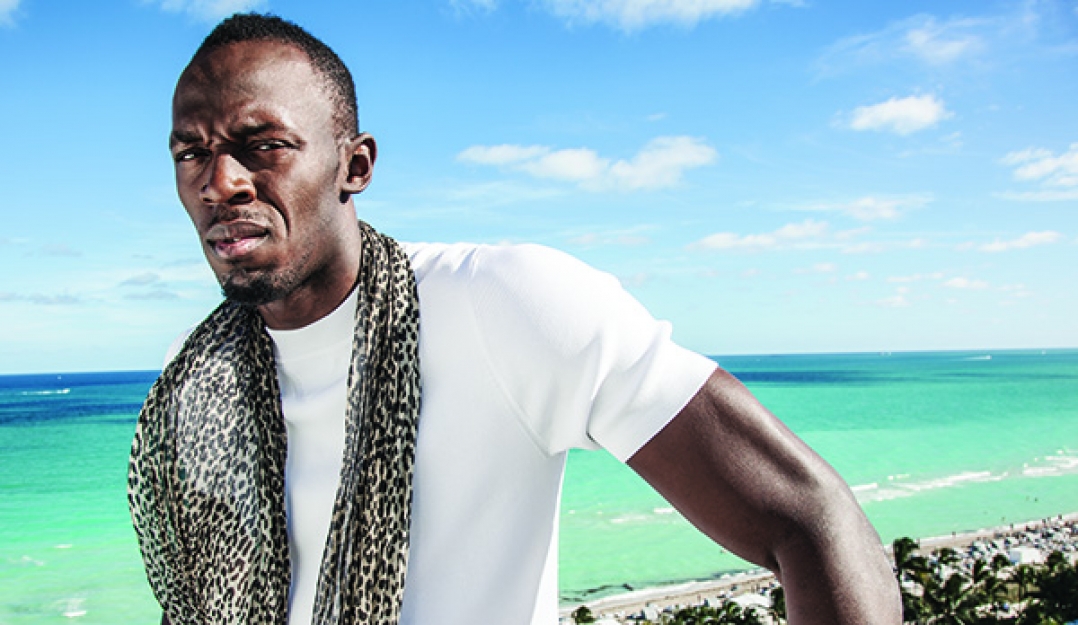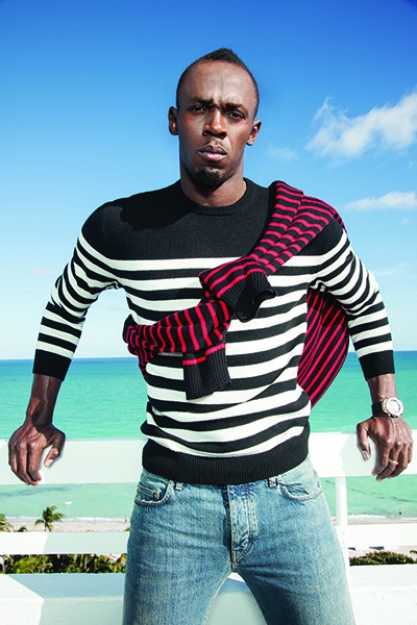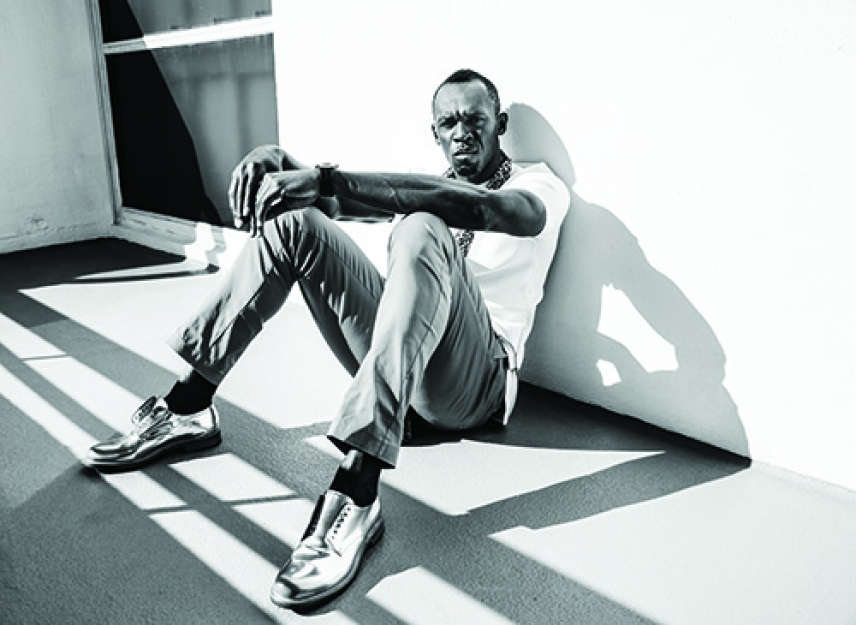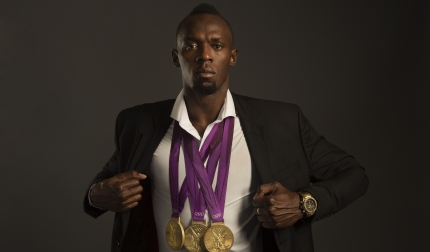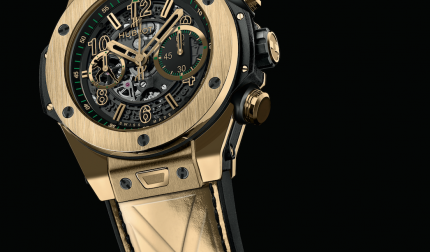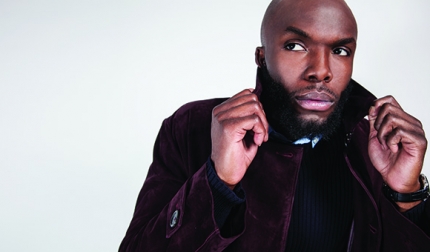When you are the world’s fastest man, a split second can be the difference between a lifetime of glory and eternal regret. A slow break from the starting blocks, raising your torso too quickly during the race, an inefficient lean at the tape—it just takes one imperfection, in an otherwise flawless race, to leave a runner with a lifetime of what ifs. For Usain Bolt, the pride of Jamaica and the planet’s most iconic sprinter, that split second nearly cost him his life.
On April 29, 2009, Bolt, then the reigning three-time Olympic gold medalist, was driving his BMW M3 Coupe along Highway 2000 in Vineyard Toll, Jamaica. He was in a hurry. His beloved Manchester United soccer team was playing in an important Champions League semifinal game, and Bolt didn’t want to miss the start of the game. To Bolt, missing an important Red Devils game was worse than missing a race. Cruising along the rural roads near his home parish of Trelawny, Bolt was driving the way he likes to do everything—fast.
Once he got to the highway, the roads smoothed out, but Bolt soon found himself face-to-face with a tropical storm. Thundering rain pelted the windshield of his new car, a thank you gift from Puma for winning three gold medals at the 2008 Olympics. Despite the slick road conditions, Bolt felt prepared to handle the weather. He had just learned how to handle the car on wet surfaces at a driving school in Germany.
Rather than pumping the brakes and causing the wheels to lock up, he downshifted gears to slow down the car. But the car wasn’t slowing fast enough. When a truck passed in the opposite direction, it fired water from its wheels at Bolt’s car, making the situation more treacherous. As the truck passed, another car followed quickly behind. Then, Bang! Before he could react, Bolt’s car was sliding across the lanes of the highway as if it were on a sheet of ice. He could see the highway slipping away from the wheels of his car. The automobile flipped once, twice, then a third time. Bolt could only watch as the world spun through the windshield, before he and the car landed upside down in a ditch.
When Bolt could finally realize what had happened, he was grateful to be alive. Even more incredibly, he wasn’t seriously injured. His seatbelt saved his life. His scratches would heal quickly. He would live to race another day. “I took it as a sign from above,” Bolt says. “It was a message to me that I was chosen by God to use my talent and be the world’s fastest man. He looked after me. But now I had to do a better job of looking after myself.”
For just about any athlete, winning Olympic gold in the 100 meters, 200 meters and 4x100 meter relay would be enough to cement a track star’s iconic status. When Bolt accomplished the feat in Beijing in 2008, it had not been done in the Olympics since Carl Lewis had accomplished it for the United States in 1984. From the 2008 Games alone, a lifetime of award ceremonies and sponsorships awaited him. But for Bolt, he still felt like he had much more to prove.
“The year before, Tyson Gay was considered to be one of the world’s top athletes,” Bolt says. Gay had completed the gold medal trifecta at the World Championships for the United States in 2007. “When Gay got injured, he didn’t make it into the Olympic finals in 2008. So people were saying, ‘Of course, Bolt looks impressive. Tyson Gay is hurt.’ And so on. So I thought to myself that if that’s the way people feel, I’ll have to do my time at the World Championships and prove that I’m the best.”
Since then, Bolt hasn’t just proven that he was the best sprinter of the moment. He has made a compelling case for being the greatest of all time. At the 2009 World Championships in Berlin, he repeated his gold medal performance in all three events. During the 2011 World Championships in Daegu, South Korea, he brought home gold in the 200 meters and 4x100 relay, losing an opportunity at gold in the 100 meters after he was eliminated by a false start. At the 2012 Olympics in London, with the world watching, Bolt ran a record 9.63 in the 100 meters, winning triple Olympic gold a second time. And at the 2013 World Championships in Moscow, Bolt swept his three events for an unprecedented third time. When I ask Bolt if he ever stops to think about what he’s done, he immediately shakes his head no. “There’s still more work to do,” he says.
Today, we are wrapping up our photo shoot with Bolt at the Fontainebleau Hotel in Miami. From there, I am accompanying him to the grand opening of the Hublot Boutique in the Design District of Miami. As a brand ambassador for Hublot, Bolt makes appearances around the world not only to promote his signature watch, but to promote the brand itself.
With the Art Basel fair now in full swing, stars from the art and entertainment world continue to descend on South Beach—some to purchase art, some just to party and to be seen. Yet despite the high wattage celebrity appearances, Bolt is a star among stars. At six-foot-five, he is a head above the crowd wherever he goes.
As we leave the hotel suite to head to an awaiting car, a woman of Jamaican descent who works at the hotel sees her country’s icon. “Hey Bolt!” she screams. “You make us proud!” Bolt walks quickly to the woman and gives her a big hug.
“How ya feelin’, love?” Bolt asks.
“I’m good now!” she says, and they both laugh.
“People will tell me all the time, ‘Thank you for putting Jamaica back on the map! Thanks for bringing us back!’” Bolt says. “It brings me joy that I can make Jamaicans all over the world prideful in our country.”
As we walk to the car, I ask Bolt if he ever could have imagined having this kind of fame. What is it like to carry the hopes and dreams of an entire country with you everywhere you go? “I just try to be myself,” he says. “You have to try to enjoy it.”
Bolt tells me the story of how when he was six years old, his father insisted that he be polite to everyone he encountered. In Jamaica, he says, it wasn’t acceptable for a child to behave rudely, especially to a grown up. Dad was strict and believed in hard work and good manners. It wasn’t uncommon for Bolt, under Dad’s orders, to make dozens of trips from the local stream, carrying drums of water to fill the containers that the family kept in their yard. To this day, Bolt says his chores greatly contributed to developing his strength and athletic ability.
As Dad wanted his children share his good manners and respect for others, he instructed Bolt to greet everyone he encountered while walking to and from school. For Bolt, that meant saying good morning to the 20 or so people he encountered each morning on his way to Waldensia School, no matter who they were or what they were doing. Most of the people along the route would smile or offer a gentle wave. But there was one older woman who lived towards the top of the hill who would just silently glare at Bolt from behind her gate. One morning, Bolt decided not to say good morning to the woman. If she wouldn’t acknowledge him, he wasn’t going to acknowledge her. Defiantly, he strode past her without saying a word.
When Bolt returned home from school, the old woman was waiting in his living room and was still steaming at the slight. She informed Bolt’s father about what had happened. Bolt explained that the only reason he didn’t greet the woman was because she ignored him each morning. But Bolt’s father said being nice to everyone meant everyone. “That spanking stayed with me for a while,” Bolt says, laughing at the memory now. “I had no idea how much that lesson would help me. Sometimes you can have fans that can be really disrespectful. They don’t know how to approach you, and so they don’t really approach you well. The fact that I was brought up with a lot of patience, I try to be respectful and extra nice so it usually resolves the issue.”
We arrive to the new Hublot boutique, and hundreds of people are milling about in front of the store, hoping to catch a glimpse of the track superstar. When they realize he has arrived, the fans shriek and wave, pointing their cell phones at him to prove to friends and family members that they were this close to the man himself. And as much as he is used to crowds waiting for him, this crowd feels different to him.
“As a brand, Hublot stands out,” he says. “It brands your whole world within a difference audience, people in different communities all around the world with very high standards. These aren’t my usual fans. These are people who may not ordinarily be interested in track and field. They may be fans of golf or other sports. When Hublot brands you, it causes their following to take a closer look at track and field. It’s great for everyone.”
With the Olympics in Rio just a year away, Bolt will begin to ramp up his training. He still feels his legacy is not quite complete. No athlete has ever won three 100 meter gold medals at the Olympics. “It’s never been done, so I am trying to set the bar high,” he says. “That’s all I want to do. Set the bar high. When I came into this sport, they had done it twice. Now I’ve done it also. I’m trying to set myself away from the rest of the pack.”
And once Bolt feels his legacy is finally complete, then he will rest. “Maybe I’ll play soccer,” he says. Bolt, has trained with his beloved Manchester United before. And though the Premier League may be a distant dream, he feels playing soccer professionally somewhere can be within reach. To be able to play the sport he loves competitively at some level would be a dream even greater than the track and field glory he has already achieved. “Some people say I won’t be any good, but we will see,” Bolt says. “Why shouldn’t you live your dream if you can?”


